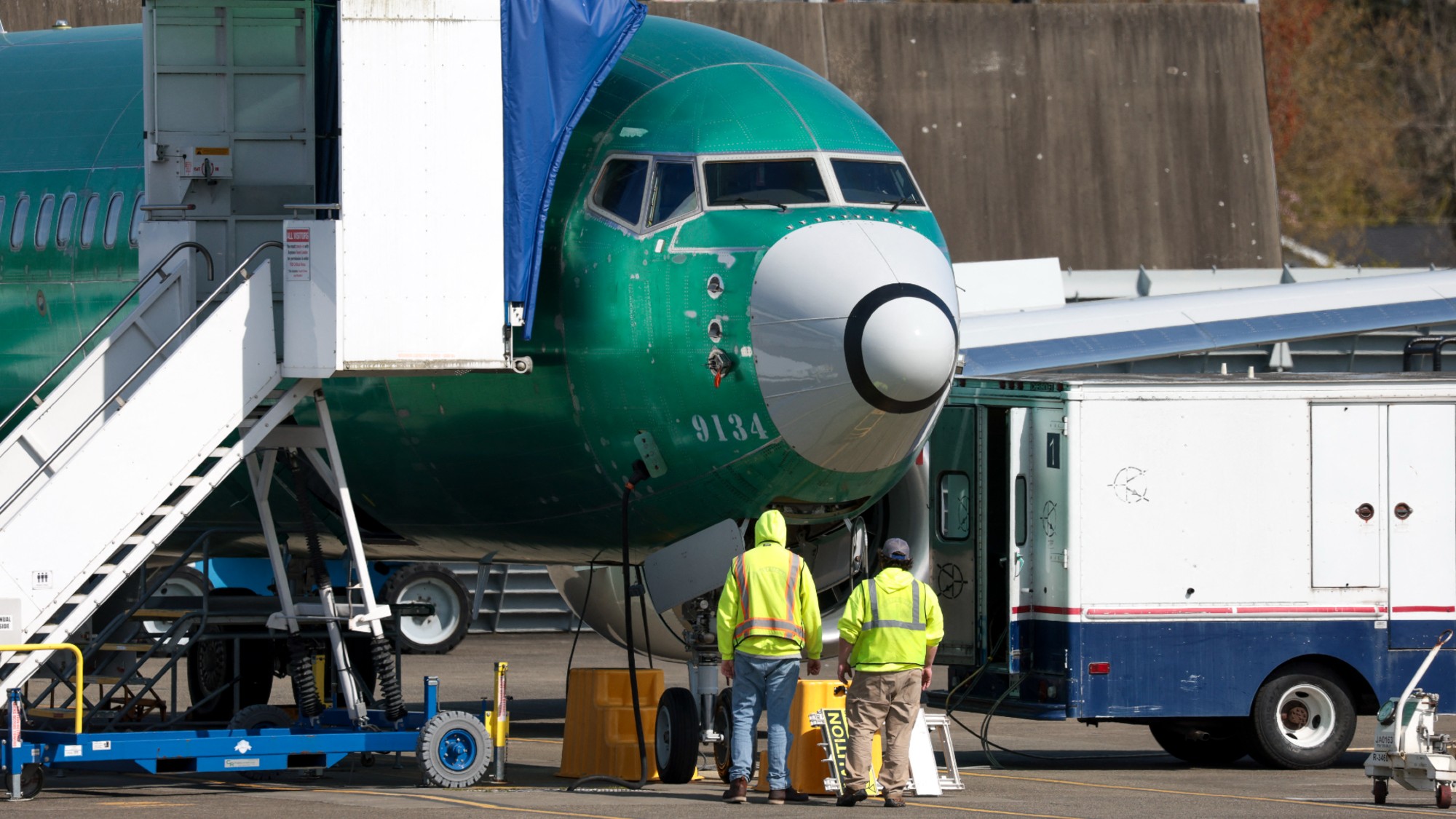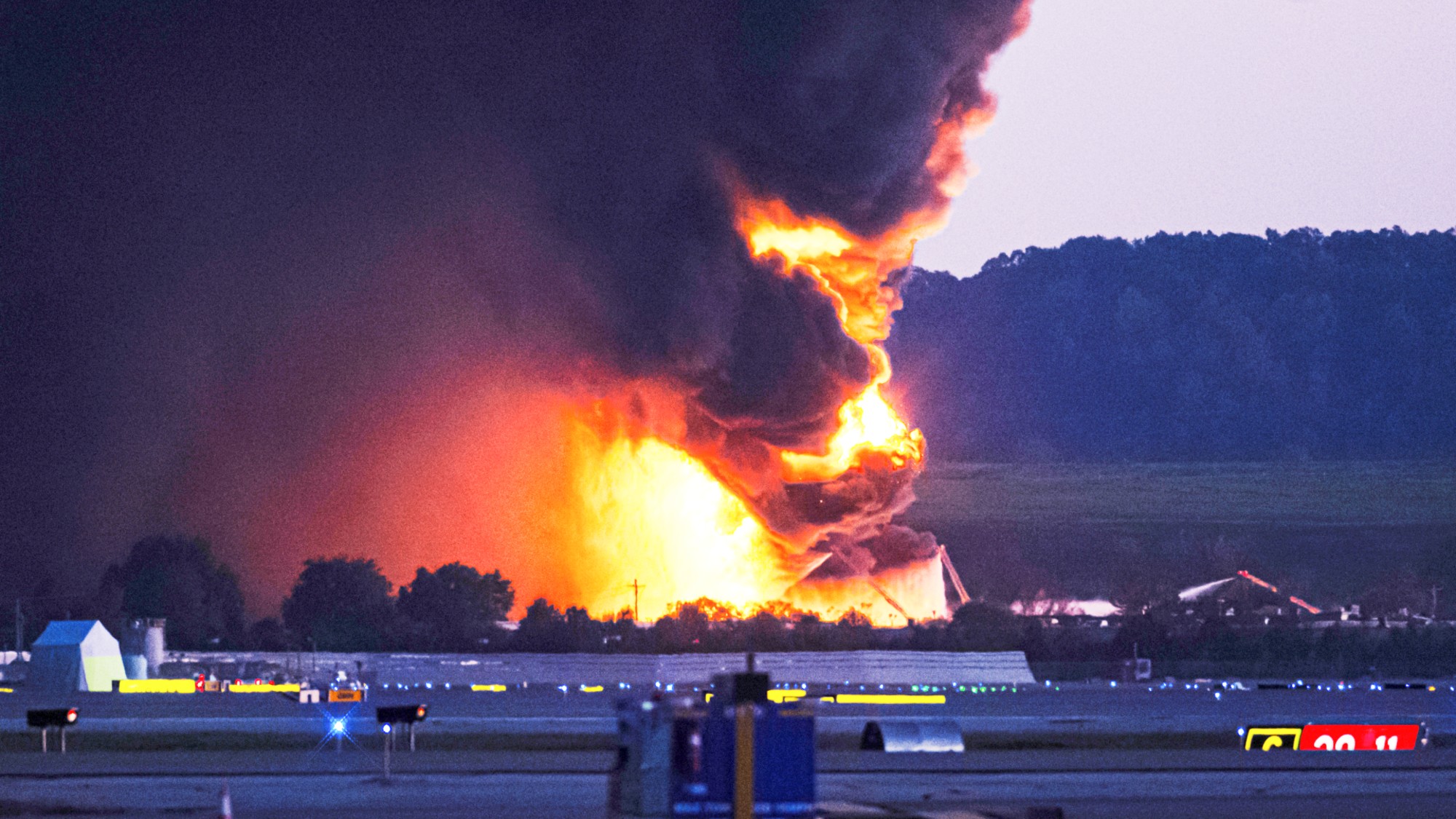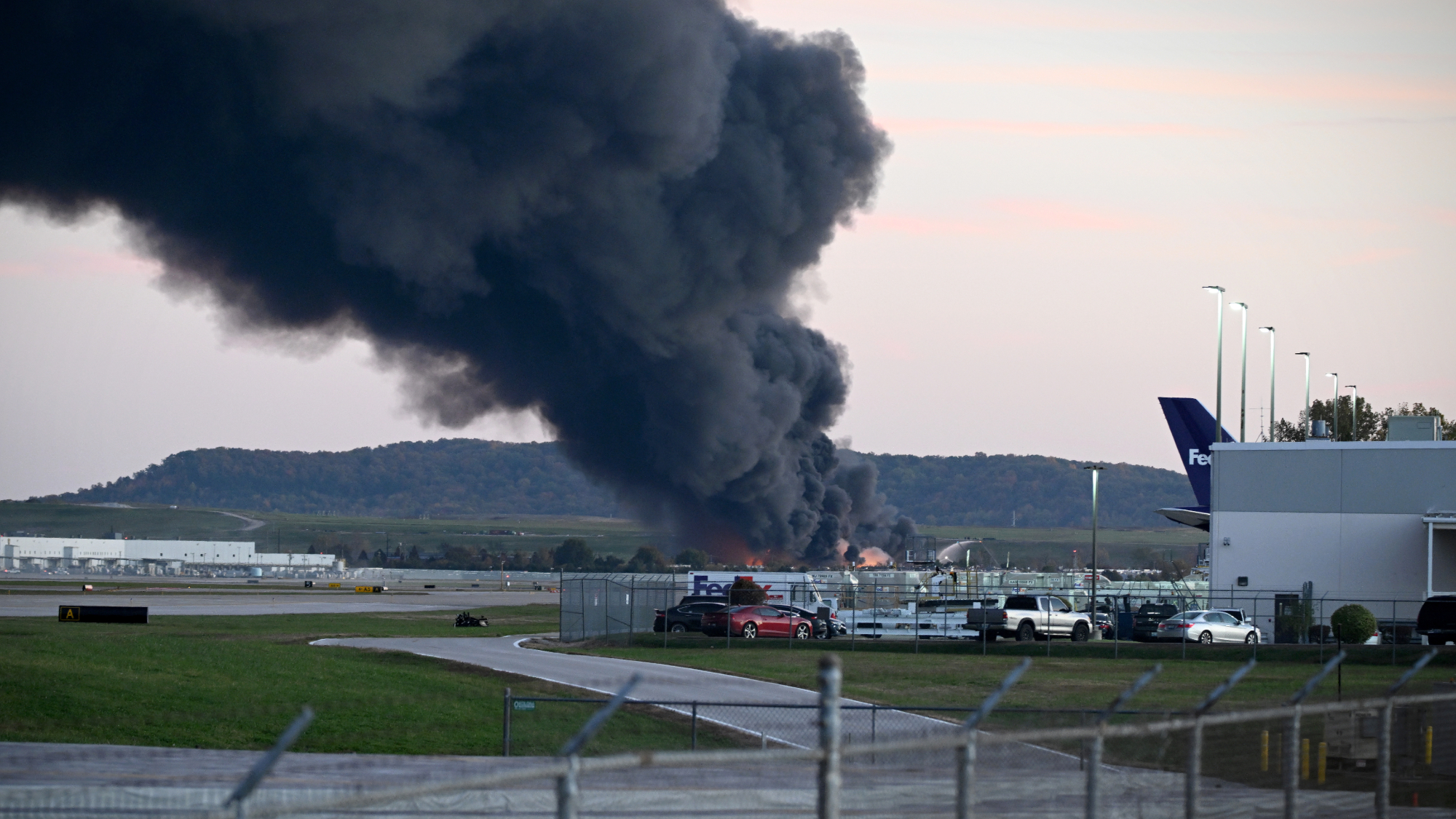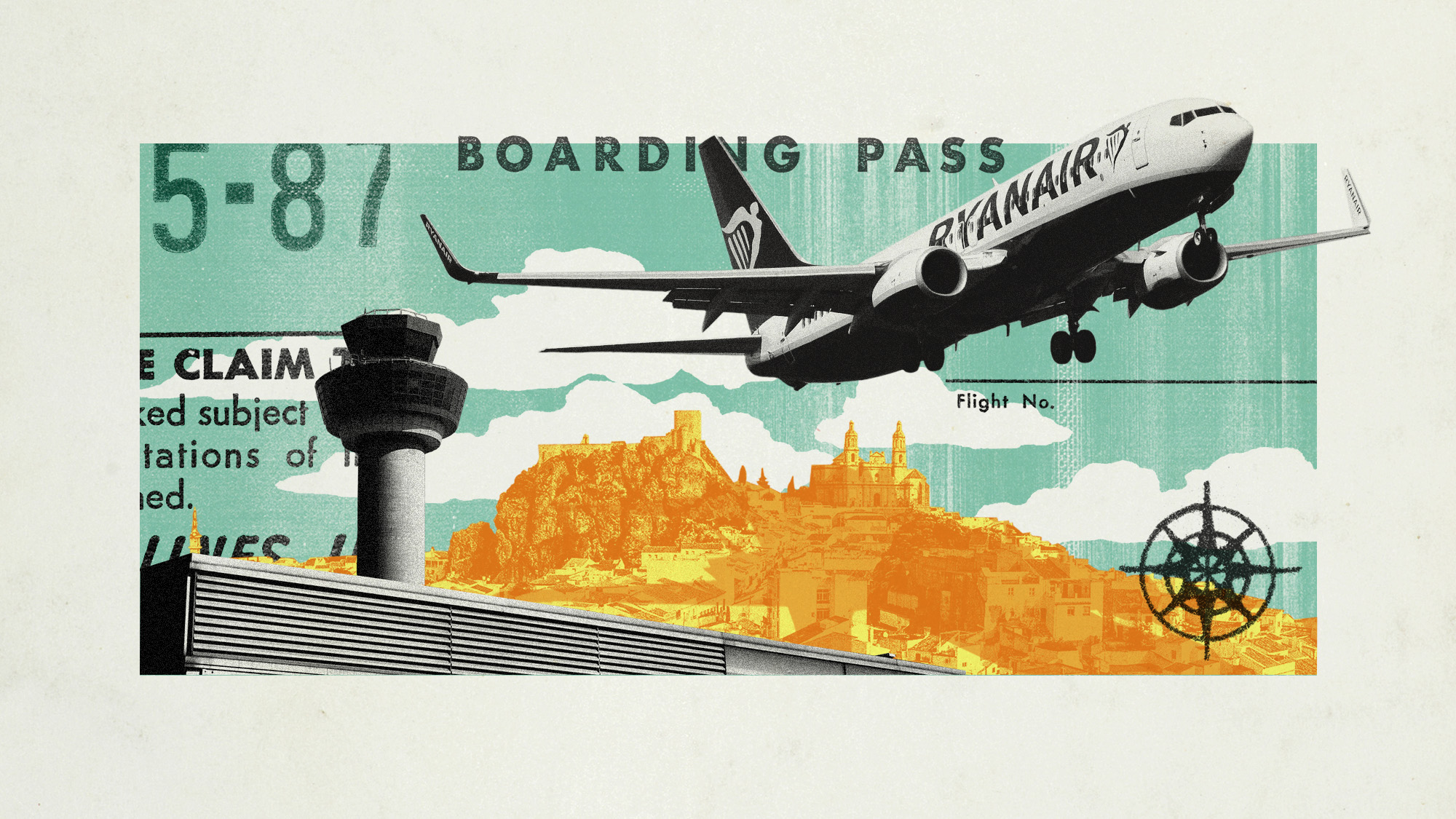Questions abound over the FAA’s management of Boeing
Some have called the agency’s actions underwhelming


A free daily email with the biggest news stories of the day – and the best features from TheWeek.com
You are now subscribed
Your newsletter sign-up was successful
With airplane manufacturer Boeing under intense scrutiny for the better part of a decade, the Federal Aviation Administration (FAA) has been working to implement safety reforms at the company. But not everybody is satisfied with how the agency is handling things. The FAA has taken major regulatory actions against Boeing following a slew of safety mishaps, including a recently proposed $3.1 million fine, but also announced it will be letting the company have more control in the near future. While some have lauded the FAA’s oversight of Boeing, others are calling the agency’s actions a mere slap on the wrist.
‘Stamp of approval’
The FAA has been “scaling back obstacles for Boeing to deliver some of its newly produced aircraft to customers, a hopeful sign for the plane maker’s recovery,” said The Wall Street Journal. This includes allowing Boeing to “perform final safety checks on its 737 Max jets,” which the FAA had previously prohibited the company from doing itself following a string of accidents.
Boeing will be allowed to do the same with its 787 Dreamliner jets, and these airworthiness certifications “serve as a stamp of approval affirming that each new plane is designed to approved specifications and is safe to fly,” said The New York Times.
The Week
Escape your echo chamber. Get the facts behind the news, plus analysis from multiple perspectives.

Sign up for The Week's Free Newsletters
From our morning news briefing to a weekly Good News Newsletter, get the best of The Week delivered directly to your inbox.
From our morning news briefing to a weekly Good News Newsletter, get the best of The Week delivered directly to your inbox.
Boeing is clearly “winning more confidence from its regulator after years of safety and manufacturing crises,” said CNBC. The FAA’s decision to ease Boeing’s “regulatory burden is a sign that government officials are satisfied with the company’s progress on improving its manufacturing process,” said the Journal.
‘Too much leeway’
Not everyone is convinced that the FAA’s oversight of Boeing is strict enough. Boeing “got into trouble in the first place because it was given too much leeway on certifying its own work and ended up deceiving authorities,” said Bloomberg. The FAA has said allowing Boeing to certify its own planes is necessary to free up federal regulators, but with a Trump administration “focused on shrinking the federal workforce and cutting regulation, there’s a danger this may again go too far.”
Critics have also suggested the FAA’s penalties to Boeing are not aggressive enough given the company’s wealth. The agency’s proposed $3.1 million fine is “little more than a rounding error for Boeing,” Sen. Richard Blumenthal (D-Conn.) said in a letter to FAA Administrator Bryan Bedford. For Boeing, a fine of this amount is “easily absorbed as the cost of doing business, not a meaningful deterrent to dangerous behavior.” Unless fines “rise to the level that forces the company to invest in real safety reforms, the risks to the flying public will persist.”
Blumenthal, the top Democrat on the Senate’s committee investigating Boeing’s safety issues, is looking for the agency to “explain how it calculated the penalty,” said Reuters. Fines or not, if Boeing’s “production ramp-up goes smoothly, the company will soon be rolling in cash,” said Bloomberg, but if “there’s a snag or another mishap, it would be a serious setback.” The FAA “needs to take off the leash at some point, but perhaps it still needs to be held tight during this initial effort to boost production.”
A free daily email with the biggest news stories of the day – and the best features from TheWeek.com
Justin Klawans has worked as a staff writer at The Week since 2022. He began his career covering local news before joining Newsweek as a breaking news reporter, where he wrote about politics, national and global affairs, business, crime, sports, film, television and other news. Justin has also freelanced for outlets including Collider and United Press International.
-
 Health insurance: Premiums soar as ACA subsidies end
Health insurance: Premiums soar as ACA subsidies endFeature 1.4 million people have dropped coverage
-
 Anthropic: AI triggers the ‘SaaSpocalypse’
Anthropic: AI triggers the ‘SaaSpocalypse’Feature A grim reaper for software services?
-
 NIH director Bhattacharya tapped as acting CDC head
NIH director Bhattacharya tapped as acting CDC headSpeed Read Jay Bhattacharya, a critic of the CDC’s Covid-19 response, will now lead the Centers for Disease Control and Prevention
-
 Is a social media ban for teens the answer?
Is a social media ban for teens the answer?Talking Point Australia is leading the charge in banning social media for people under 16 — but there is lingering doubt as to the efficacy of such laws
-
 A 34-year-old plane is at the center of the UPS crash
A 34-year-old plane is at the center of the UPS crashIn the Spotlight Many air cargo companies use planes that are this old
-
 At least 7 dead in Kentucky UPS cargo plane explosion
At least 7 dead in Kentucky UPS cargo plane explosionSpeed Read Another 11 people were hurt
-
 Why are American conservatives clashing with Pope Leo?
Why are American conservatives clashing with Pope Leo?Talking Points Comments on immigration and abortion draw backlash
-
 Trouble on the seas as cruise ship crime rates rise
Trouble on the seas as cruise ship crime rates riseThe Explainer Crimes on ships reached nearly a two-year high in 2025
-
 ‘Hypocrisy’ and ‘blackmail’: Ryanair’s feud with Spain
‘Hypocrisy’ and ‘blackmail’: Ryanair’s feud with SpainUnder the Radar Bitter row over rising fees sees the Irish budget airline slash a million seats on regional routes this winter
-
 Don't fly by the seat of your pants. Do it the healthy way with these airborne tips.
Don't fly by the seat of your pants. Do it the healthy way with these airborne tips.The Week Recommends Yes to stretching. Even more yesses to hydration.
-
 GPS jamming: a new danger to civil aircraft
GPS jamming: a new danger to civil aircraftThe Explainer Use of the 'invisible threat' is on the rise
